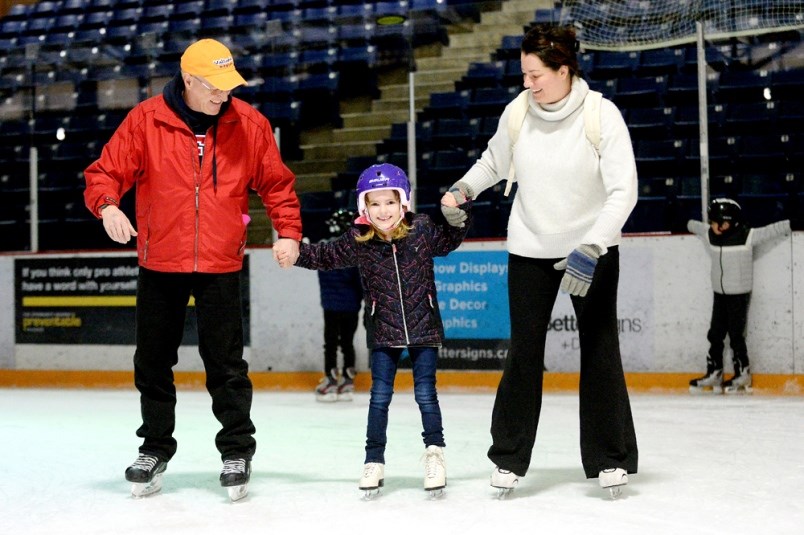New research is looking at an iconic winter activity to better understand its positive contributions to cities like Guelph.
Skating rinks have been a seasonal pastime for many years in Canada, but is often an overlooked area to study. Recently, researchers at the University of Guelph observed two skating rinks in Guelph and Toronto for 100 hours to monitor interactions between different individuals.
“You wouldn’t think about studying a skating rink in general, but when you actually study it, you realize it’s full of really well-coordinated and pleasurable social interactions,” said Saara Liinamaa, a sociology professor at the U of G.
This research is part of a larger study being conducted by Liinamaa and fellow U of G professor, Mervyn Horgan, called the Sociable Cities Project, which is examining how to improve socialization in urban spaces.
“We’re interested in places where people enjoy themselves without conflict and are free and accessible spaces.” she explained about skating rinks and public spaces taken for granted, like parks.
Through their observations, researchers found skating rinks are a relaxing and playful setting which attract a variety of individuals, creating the ideal environment for conversations between strangers.
“What I love about it (skating rinks) is that it’s so mixed,” said Liinamaa, “You have great skaters alongside people who are just learning,”
She notes these different skill levels especially benefit new skaters, as everyone is more tolerable.
“Wonderful places where you can be free to make mistakes,” said Liinamaa, “Where you think in a lot of contexts where if you fly into someone they might get upset, or think you're being rude.”
"But at an ice rink, everyone is so tolerant and helpful."
While public rinks found to increase socializing, previous research on hockey rinks found that they led to more social exclusion and competition among participants.
“Anything that involves a little more equipment and skill, you would feel more comfortable playing if you have had some lessons or opportunity,” Liinamaa explains.
She goes on to say that for adults who didn’t grow up skating, the idea of trying to play hockey is ‘terrifying.’
“Learning to skate and then play hockey is unimaginable."
Although the observed interactions at the skating rinks were considered positive, Liinamaa did notice some instances where they will need to do further research.
“There's still lots of stuff to be done to make these spaces more accessible for those with mobility impairments,” she said.
She mentions the idea for this research was designed pre-pandemic, but now has suddenly taken on a new meaning with restrictions on social gatherings and events.
With skating rinks providing many positive benefits for residents, Liinamaa hopes municipal planners will consider coming up with ways of improving these spaces, whether by providing free skate rentals or improving accessibility.
“Particularly, that they remain free and open, so not commercialized, inclusive to all different levels of skating and identities."
